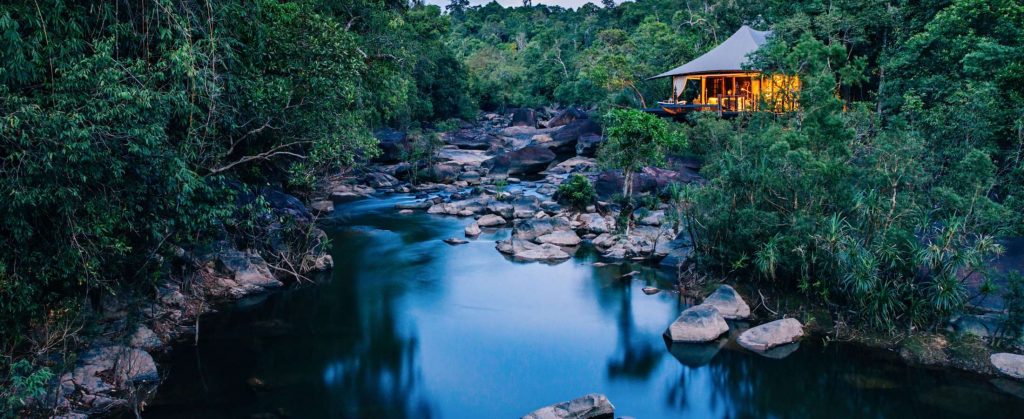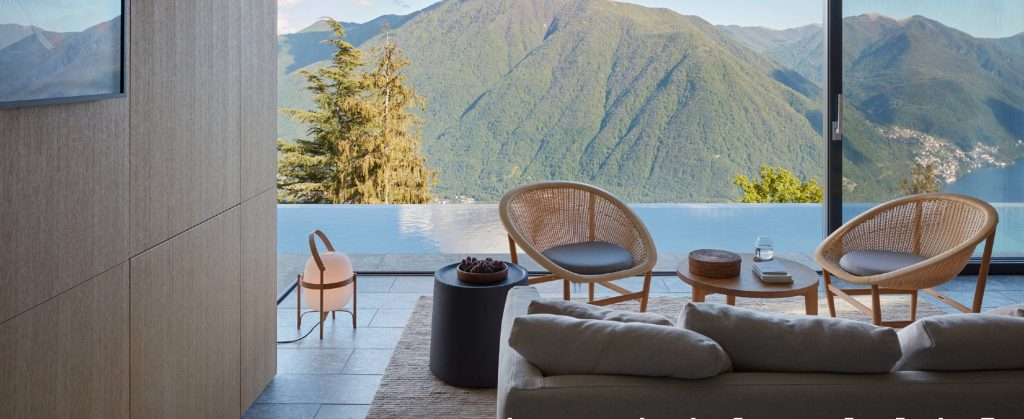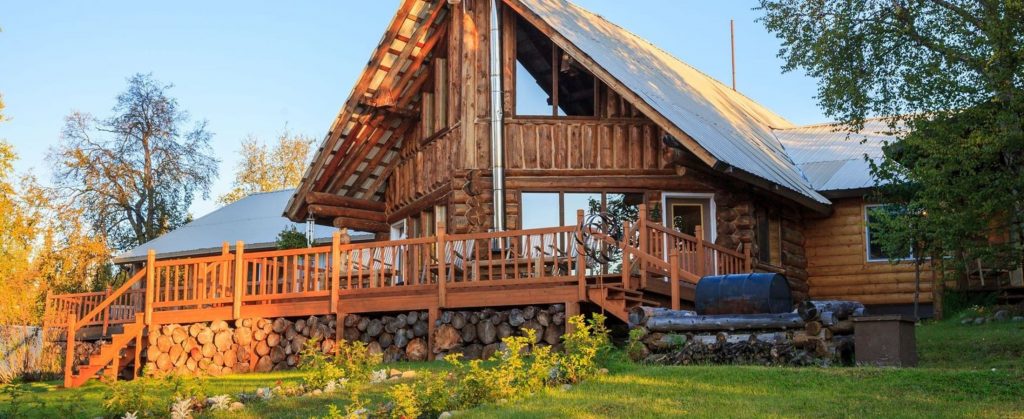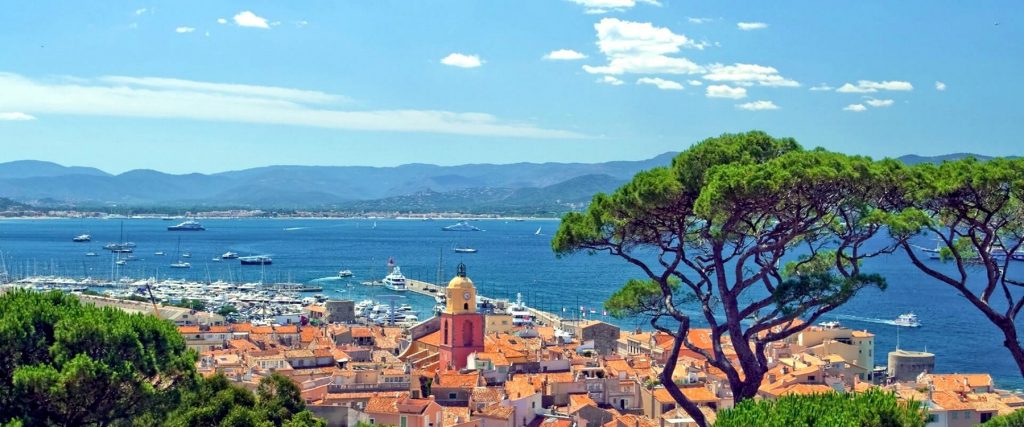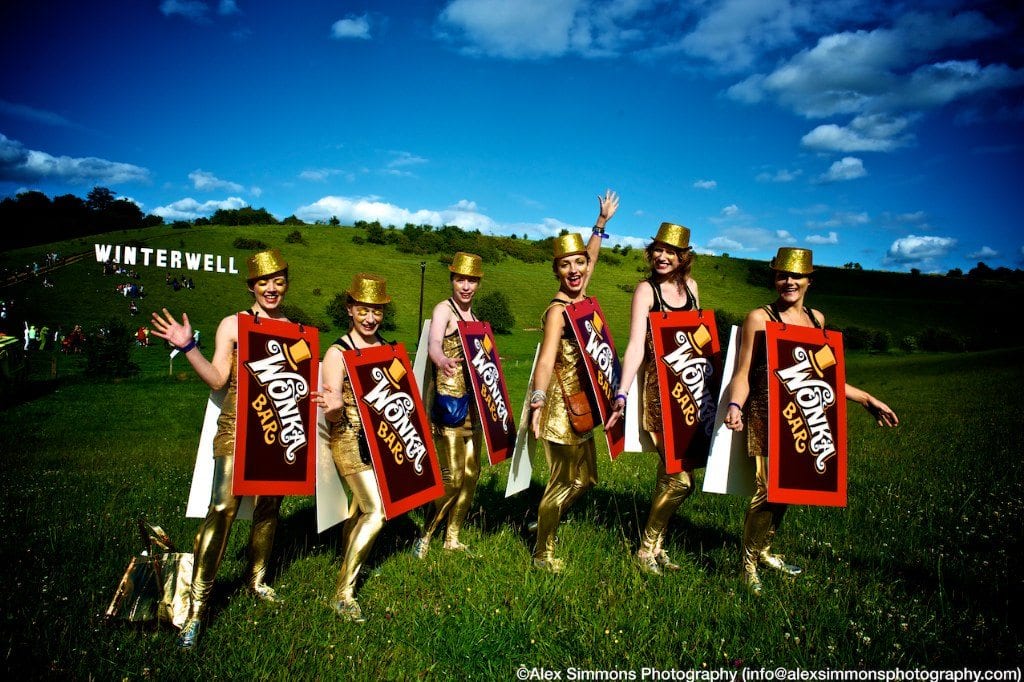Luxury and sustainability are not forces fighting each other, but actually work very well together, and more luxury travellers demand a sustainable stay. Thus proves Eleni Andreadis, the Director of Sustainability at Sani Resort, who has recently achieved a zero carbon footprint for her family’s luxury resort. The Sybarite speaks to Eleni about the importance of educating children on sustainability through reading, the beautiful biodiversity at Sani and what we can all do to be a little more ‘green’.

Tell our readers a bit more about yourself and your background.
I grew up in the hotel business because it was our family business, to the point that we actually used to live in hotels for a big part of the year. I was born in London, then we moved back to Greece. I studied and worked abroad for about 12 years, mainly in the UK and the US, where I focused mainly on environmental policy and management. Then I eventually came back to the family business, where I formalised our sustainability programmes. I created the Sani Green Programme about 12 years ago.
At the same time I head up our group sustainability efforts and then I also have personal, parallel interests as an educator in the environmental field. I run a non-profit, and we run environmental programmes in schools here in Greece.
Then lastly, I also write children’s books. I have written seven of them, all focussed around the environment, for pre- school age up to teenage years. I have two children myself so yes, it is quite a lot of work, but I believe books can have a tremendous impact on children. For example, I recently read a book with my daughter, about a little girl who plans a beach clean up because she does not want the seagulls to be eating plastic. The impact that this book had was that my daughter was so excited by this story that she wants to do the same. She is only three and a half! So she made all these invitations for her friends and we organised a day in our local park to do a cleanup there. It was so amazing to see the impact on my young daughter.
This feeds into a big project we do at Sani, with the local wetlands. For almost 10 years we have partnered with birdlife international partners, including the Hellenic Ornithological Society, which is the preeminent bird charity here in Greece. We have a children’s book about the Sani world, in which kids learn about the wetlands and the different species of birds. This, and also through schools, is a way for us to raise awareness about the biodiversity and challenges to the biodiversity, as well as hosting schools in the wetland. So generally, I would say education is something I’m passionate about, and something the company is investing in and focusing on too.
Tell us a bit more about this non-profit organization that you lead.
It is called Planet Agents. The idea is that kids become secret agents to save the planet because adults have failed. So they get little missions, like getting rid of plastic in their neighbourhood or going zero carbon in their school. They earn badges and things as they go along and have their own Planet Agent ID. It is mainly focussed around primary school ages. It is really very fun and the kids absolutely love it.
How did you become passionate about sustainability to the point where you wanted to make a career out of it?
As a kid, it was always easy to take nature and the environment for granted. But we grew up in nature – I remember us going on walks and spending hours in the forest. So as long as I can remember, I have always really loved spending time in nature. And I loved animals as well, I turned vegetarian when it was not just a fashionable thing to be vegetarian. What is one of my earliest memories was campaigning against the clubbing of seals, as that had just become a huge thing and Timberland was in trouble because they were using seals for their shoes. So I remember doing a campaign against this at school. So the passion was always there. But I thought of it as a sort of pride thing and a hobby, and I never really thought it could be like, like a job. And then at some point, I studied business and I took some sustainable business courses and that opened my eyes a little bit. I then worked in consulting for nonprofits, and gradually realised that you could actually build a career of working in sustainability and I feel really lucky to have been able to work in my area of passion.
And it is the same like writing, for example, I really loved writing even in school, and I wrote for the school newspaper, and same with university, but I never really thought about combining it with sustainability. But the ability to combine two of my passions has added a determination and excitement to my work.

You are the Director of Sustainability at Sani. In a normal (pre- and post-Covid) world, what does that role entail?
I go round the hotels on a daily basis to check if our programmes are fully working and to do on the job training for any issues that may have come up. I work very closely with the entire team, because there’s so much ground to cover, that the support is really vital, and I do a lot of training too. Especially during COVID, it gave us time to really focus on our training. I have run workshops for various levels of the team, things like sustainable finance, for our team to understand this better, but also for housekeeping staff and the sustainability revolving around that.
A lot of my day also revolves around our longer term projects, like for example, zero plastic or zero plastic goal, looking at alternatives and what we can in terms of items, how we can replace any plastic we may be using. We have already done a really big job of eliminating single use plastic, but we’re trying to go further. For example, in the kitchens, how can we get rid of things like plastic membrane, and how can we do things differently?
Then I also spend a lot of time meeting up with our partners, for example the birds charity I mentioned, or IC, which is a marine conservation group with whom we are running a program this year to monitor the local dolphin populations.
So every day really varies. I also do try and experience things like our environmental tours. So we have like an eco guide who does trips to the wetlands, forest walks, we do olive tree planting and beekeeping. So I do try and actually go on those experiences as well, just to get a sense of how they’re going. And within all the things I do, it always presents me with great opportunities to speak to our guests and see what they’re thinking.
Congratulations on achieving a zero carbon footprint for Sani. What was the journey like to get there? And how do you keep that standard?
Thank you. It has been a long journey. We have been looking at reducing energy use for years now. But I think when the Paris Agreement came in, there was this recognition that, you know, companies also really need to step up their game. This also gave us a clearer focus that we also want to be able to get to a carbon neutral status, and do so in a very credible way as well. In total it is a four year project. Currently, we are carbon neutral, but there are some components of that. We are powered by 100%, renewable energy for electricity. But then obviously, our carbon footprint is made up of other parts as well. So you have guest transfers, you have employee trips, you have no linen, but some of it goes outside to be washed. So you know, it’s a bigger thing. So we have to offset some part of that. And we’re looking at the best way to do that, at the moment we’re exploring, using our own Sani wetlands to create our own offsetting project. So the money that we’re devoting that actually goes back into protecting the local biodiversity rather than being offset somewhere far away.
We are also increasing renewable energy on site. At the moment we are partnering with an energy provider so that we can have 100% renewable energy, for electricity. But then, through the use of photovoltaic panels we want to upgrade our buildings so that they’re all at the top energy class. So it’s a big project. But I do think that we’re seeing a huge momentum that way, and we’re seeing a huge push from not only guests, but also stakeholders. I’m really happy about where we are at, at this point, and that we are really going the extra mile to do even better in this field.
Do you have any tips that you can give the younger generation to help the planet practice sustainability?
First of all, I think this is an issue everyone should address, not just the younger generation, just because it will impact their future the most.
Secondly, I think what some people don’t realise is the extreme urgency of these issues, and I think this is actually where the younger generation is a little bit more aware. When it comes to, for example, the climate crisis, there is an extremely important meeting coming up this November of the UN, which will actually largely determine our planet’s fate, when it comes to climate change.
We may have 10 years to change the state of the emissions but actually, the decision will need to be taken now. And the same is true for other issues, like the staggering biodiversity loss that we’re seeing. In the last 60 years we’ve lost 50% of the world’s plants and animals. Our oceans are expected to have more plastic than fish by 2050. So the urgency of these issues is huge. And I think we just all need to devote all our energies towards stopping this and reversing this.
So little every day tips? Eating less meat and dairy products is probably the single most important thing that you can do for climate change. reducing your single plastic use and generally your plastic use. Like I mentioned before, instead of using plastic membranes you can store things in containers or use alternative products like beeswax. Becoming more educated about these issues, and are realising that everything can make a difference – where you invest your money, the resort you choose to holiday with – it is time we hold all companies to a much higher standard of accountability. I personally like to choose companies that are not just not harming the planet, but actually actively doing good. And ask more of your local representatives.

Tell us a bit more about the children’s books you have written and what they are about.
I have written books for different ages. My most well known series of books here in Greece which has five books is called Planet Agents, the same idea as the nonprofit. It is about a group of kids from around the world that take on missions to save the planet. And they’ve been translated in or out in six different languages and I’ve also sold the rights in the US.
I’ve also written a preschool book, which explains similar things but in a more accessible way. And then I have a book about teenagers, about a group of kids that is trying to stop climate change. And they end up basically protesting outside a meeting of the world leaders. This was before Greta Thunberg, and it made me think how funny the world actually is that these stories are actually coming to fruition – which is amazing!
I actually have another book coming out in the Fall, again for middle school ages. It is something that I really enjoy doing and will definitely keep doing as long as possible.
Have you always enjoyed writing?
When I studied in the US, I took a writing course and the professor I had was really quite inspiring and really encouraged me. This just gave me some confidence to start writing in a more literary way. I hadn’t written for years, and then combining it with sustainability made me think, oh, I should really I should really do that.
What sustainability work have you done with the UN? And do you think that they’re vital in leading the plight for a greener world?
I am a member of the Leadership Council for the UN solutions network here in Greece. Basically, the aim of the council is to help locally to promote the Sustainability Development Goals that the UN agreed on in 2015. When it comes to sustainability, I genuinely believe that these issues really go beyond being country-specific with drawn borders, but instead that they are issues that we’ll need to work together to solve. So in that respect, I think it’s very important to have institutions that help with that.
I am currently actually working on communicating the sustainability development goals to teenagers. And they are quite complicated to communicate! There’s 17 of them, and they’re quite complex. But I think it is all about the main environmental goals, which are everything to do with water, land, healthy oceans, climate action, and that’s kind of the basis of everything. Of course, issues like the economy and gender equality come up but you need to have that basis of a healthy planet in order to even start discussing the other ones. So I think You know, I think of bras for this
Tell us a bit more about what Sani resort has been like this year and what makes it such a special palace.
Sani resort was wonderful last year, we opened up as normal with some world class COVID protocols. So it was actually really wonderful for the guests who were able to come and who were able to experience the full Sani experience safely.
I think the reason why Sani is special is because it’s five hotels that are housed and privileged to be in a really rich and bio diverse area. So it’s on a 1000 acre reserve with forests, with 25, plus kilometres of forest trails, many beaches and then the 110 hectares of wetlands with a huge biodiversity of birds, close to half of what you’d find in the whole of Greece. So for me, I think there is this uniqueness of the natural beauty and I think this is the reason why people often say that they feel this great sense of wellbeing when they’re at Sani. And definitely that has to do with visiting the lovely spa and, and eating wonderful food and all that but for me, it’s also just the beautiful nature and the pride also in the space.
What makes Greece such a beautiful place that draws so many people?
I think you have to start with the climate. We do have a wonderful climate. I think it was best put by Lawrence Durrell, in a passage about Greek light from “The Greek Islands”:
“Coming out of the dark church into the market he will be almost blinded by the light, for the sun is up; and it is now that the impact of this extraordinary phenomenon will begin to intrigue him. The nagging question, ‘In what way does Greece differ from Italy or Spain?’ will answer itself. The light! One hears the word everywhere ‘To Phos’ and can recognize its pedigree – among other derivatives is our English word ‘phosphorescent’, which summons up at once the dancing magnesium-flare quality of the sunlight blazing on a white wall; in the depths of the light there is blackness, but it is a blackness which throbs with violet – a magnetic unwearying ultra-violet throb. This confers a sort of brilliant skin of white light on material objects, linking near and far, and bathing simple objects in a sort of celestial glow-worm hue. It is the naked eyeball of God, so to speak, and it blinds one.”
Also, he said “You should see the landscape of Greece. It would break your heart.”
And then you have John Fowles, in The Magus, who wrote “I fell head over heels, totally and for ever in love with the Greek landscape from the moment I arrived……..this sinister-fascinating, this Circe-like quality of Greece…..in Greece landscape and light are so beautiful, so all-present, so intense, so wild, that the relationship is immediately love-hatred, one of passion.”
I do think that the colours and the quality of the light is really unique. And it has to do with, with the environment, I think. But I think there’s also this really diverse landscape: you have the islands and an extremely long coastline. Even though we are not a very large country we are a very long country and that has allowed for a very diverse landscape. You have really beautiful, different islands. So you have the Cyclades islands, which are the whitewashed houses. You have the Ionian Islands, with traditional Italian architecture and then you have other places like Halkidiki, with really long, sandy beaches.
And I think, also, there’s the sense of this very old history. And the people are quite friendly. So I think these are all reasons that Greece is special.
As my last question, is it possible for the luxury industry and sustainability to work together? Can you have both a high level of luxury and stay sustainable and actively environmentally friendly?
Definitely. I think that I find that it’s more of a struggle to implement sustainability principles when you have a larger scale but that is not necessarily due to the luxury component. I think that guests have become more demanding now, but more demanding in a positive way. Plastic is not seen as a luxury anymore so they will prefer and insist on something that is not plastic. I think that the awareness is increasing so much now that guests who are demanding in terms of spending a lot of money on their holiday, are also expecting sustainability. And definitely, that’s true of British guests. I think that as awareness increases, I think that luxury properties specifically will need to set up their game with advice. But I definitely think they can work hand in hand and they’re not mutually exclusive in any way. Difficulties arrive I think, with mass tourism, but as companies attracting tourists it is our responsibility and we are actually in a good position to be able to do more.

